
Your Guide To Using Fallen Leaves As Organic Compost And Organic Mulch
Published: 12/11/2022 | Updated: 29/03/2023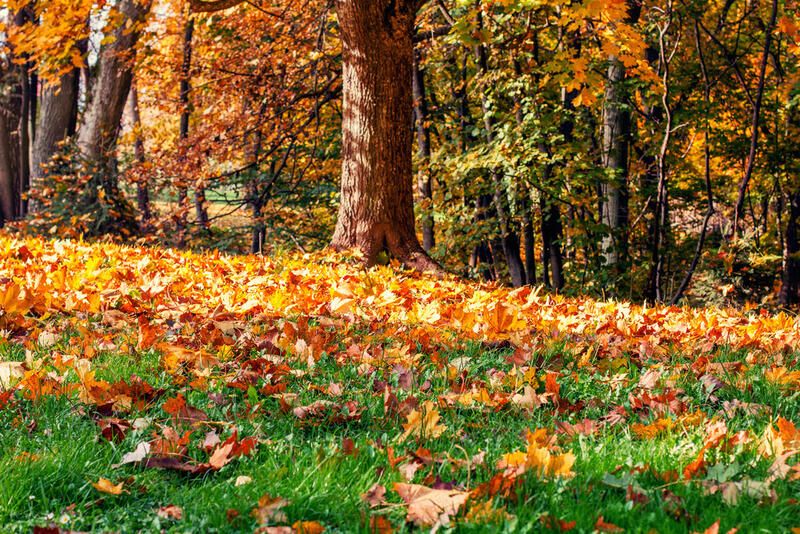
Summer has come to a bittersweet end, but as the temperature starts to cool down, a new season of joyful festivities will begin. For a lot of us, summer seems to be our favorite season, but many people enjoy the coziness of the pumpkin spice season coming our way. Halloween, Thanksgiving, and even Christmas are all beautiful festivities to look forward to during the colder seasons.


But with the wonderfully exciting festivities ahead, there is always a cost.
Whilst witnessing our vibrant green leaves turn into a beautiful deep auburn may be a sight for sore eyes, it is also a sad reminder that your lush trees will start to lose their foliage and become dormant during the colder seasons. Many of us find it a tedious chore, having to rake up all those fallen leaves constantly and having to throw out a large pile of leaves!
But what if we told you there is no need to throw away those heaps of fallen leaves and that in fact, they hold a crucial role in the maintenance of your yard during the fall and winter seasons?
Our experts at ShrubHub have compiled a step-by-step guide to show you just how to use your leaf pile as organic compost or mulch to protect your yard during the colder seasons ahead.
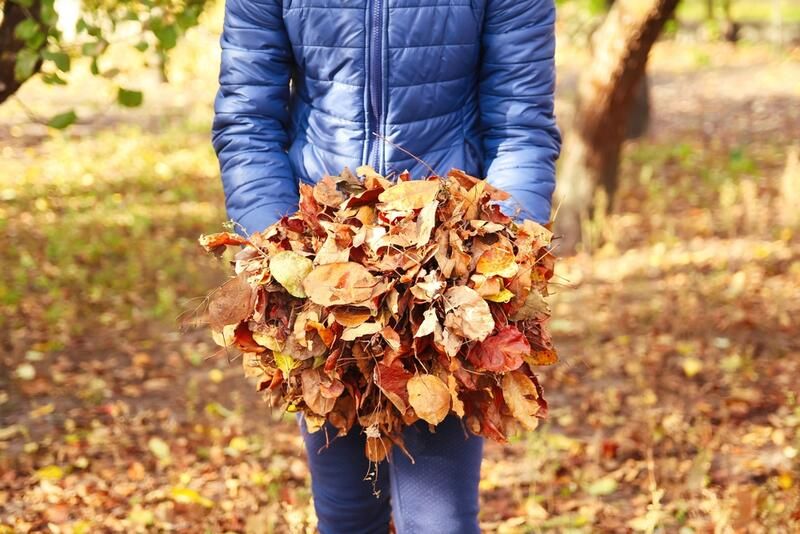
What Are The Benefits Of Leaf Composting?
Turning the pile of leaves into organic compost or mulch has a variety of benefits for both you, and most importantly for your yard. For starters during the decomposition process, it slowly releases plenty of nutrients into your soil that is very beneficial to the growth of your plants, it also balances your soil’s pH and keeps moisture levels at bay. This guide will walk you through each benefit in detail.
Helps You Save Money
Nothing is more motivating than learning that something has an unlimited amount of benefits at virtually no cost! Think of it like this, by throwing away precious dry leaves you are practically throwing away money, experts value the estimated cost of leaves from a mature tree at $50!
Consider all the money you will also save on having to buy fertilizers and the hassle of having to mix them with your garden soil when instead you could use composting leaves for free!
The only potential cost of using compost leaves is having to purchase a leaf shredder or mulcher, which you can find easily on Amazon between $50-$200 depending on the model and how much you’re willing to spend.
If you don’t want to invest in a leaf shredder or mulcher you can simply use your lawnmower to shred the leaves, it will do an excellent job and give the desired results!
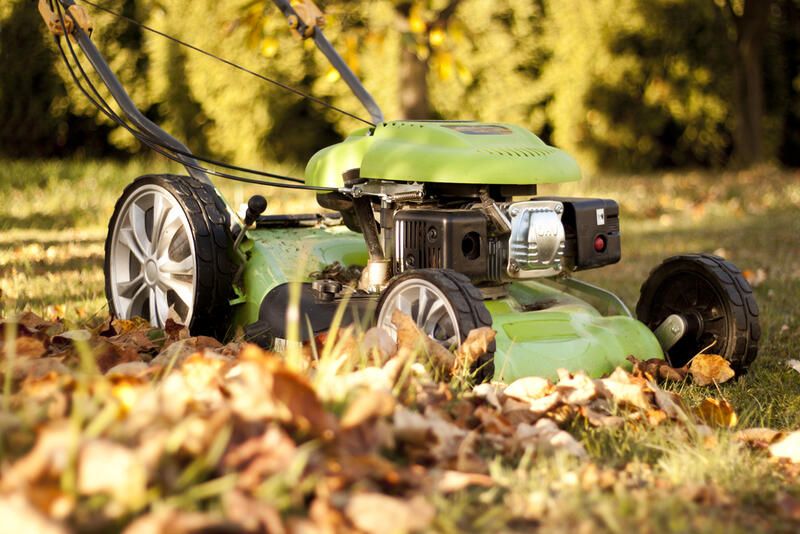
Leaf Compost is Eco-friendly
Another amazing benefit to this method is that rather than throwing away these heaps of fallen leaves in plastic bags that eventually end up filling landfills, you get to recycle them and give them a greater purpose.
According to experts around 20% of landfill waste is resulted from the dumping of leaves and yard waste. The next time you think about bagging them up in plastic think of all the wasted land being used as a dumping ground rather than for public parks for everyone to enjoy.
By recycling green waste such as food scraps and reusing your fallen leaves as organic compost you are also saving the planet by limiting the amount of greenhouse gas emissions produced when organic matter like leaves and yard waste is decomposed in landfills.
A lot of the time these landfills get rid of waste by bringing it and realizing harmful gases such as methane into the environment which has very serious consequences on our planet and climate change.
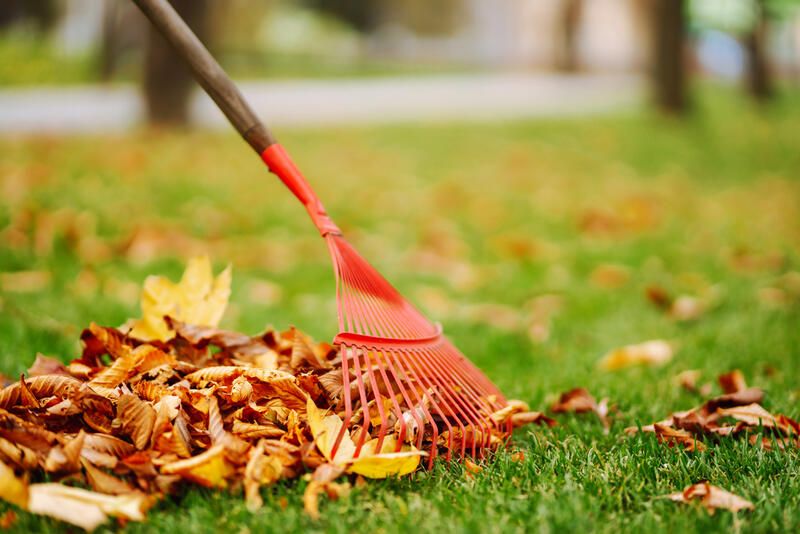
It Creates Very Nutritious Finished Compost
Dead foliage is just a part of the natural lifecycle of a tree as a result, the simple circle of life states that with death comes new life.
As metaphorical as that sounds, it is very true, dead leaves are organic waste that produces a lot of very healthy nutrients when broken down by certain varieties of fungi. Once the leaves are broken down, their nutrients seep into your soil feeding it all these minerals that are in turn reabsorbed into the other plants in your yard.
Dry leaves are a brown material, which means they are high in carbon which is extremely beneficial to your soil and the health benefits are amplified when you mix them with your regular compost pile. Unfortunately, using just leaves in your compost pile will require a much longer time for it to decompose.
It's always advisable to mix brown materials like your leaf litter with green materials such as grass clippings at a 50/50 ratio to make the best and most highly nutritious compost and the best soil amendment for your yard.
Regular compost piles normally consist of kitchen scraps and food waste such as fruits and vegetables, egg shells, and coffee grounds They can also be green matter such as weeds pulled out of your yard when cleaning and grass clippings.
These are all considered green materials and are very high in nitrogen, when mixed with brown materials the nitrogen and carbon combo provides the healthiest type of compost. If you don't have green waste, try using alternatives with high nitrogen levels like bone meal, cottonseed meal, or dried blood.
Once your black gold compost is ready you can use it to feed plants due to its many benefits to your garden soil. Your compost will improve your soil structure, if your soil is more clay-based, it will loosen up compacted clay materials making your soil more well-drained. If your soil is sand based, your compost pile will help it retain moisture better and fill it with healthy nutrients.
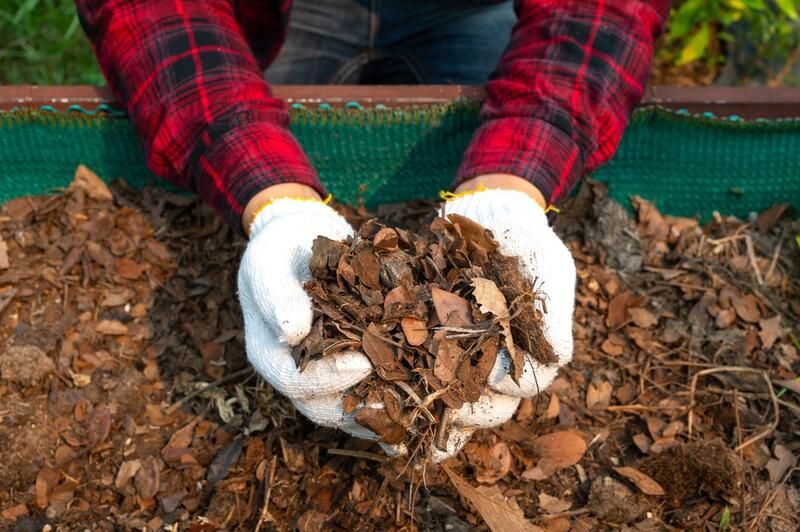
Use Leaf Mold As Organic Mulch
Our ShrubHub experts have touched on the importance of mulching many times and this article is just another example of its great importance to our yards, especially with the colder seasons approaching.
Mulch can be any organic or inorganic matter you use to cover your soil to retain its moisture, but it also has other very important uses, especially during the colder seasons ahead.
Mulch helps retain heat and moisture in your soil during the winter and protects your plants from chilly weather and cold temperatures by acting as a thick, cozy blanket. Frequent freeze-thaw cycles we face during the colder seasons can uproot our plants and expose their roots to frost severely harming them and preventing them from growing properly.
By using leaf mulch you are making sure your soil retains its moisture, temperature, and insulation and stops it from freezing. Using leaf mold as mulch can be extremely beneficial as they maintain your soil’s temperature, retain moisture and limit the growth of weeds.
Leaf mold is a little different from compost leaves as it does not produce as many nutrients, therefore, making it ideal for mulching. Making leaf mold requires shredding leaves, water for moisture, and a large plastic bag.
Because fallen leaves are brown organic matter, they decompose as mentioned in the point above and release nutrients into your soil which is an added benefit to using them as organic mulch. Some leaves such as sweet chestnut and birch leaves take longer to decompose making them perfect organic brown mulch options.
All you need to do is shred your leaves and add 2-3 layers of the shredded leaves to your flower beds, vegetable gardens, and around shrubs and trees. Just make sure the leaves are touching your soil not the stems or trunks of your plants.
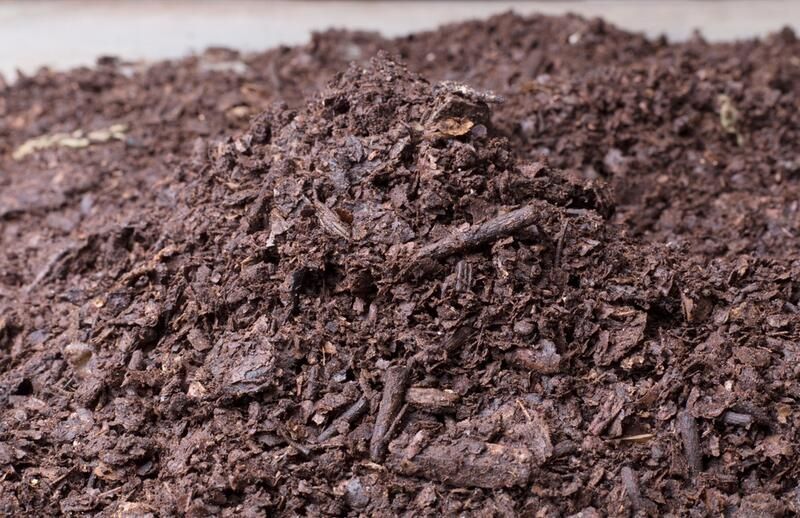
How Do I Turn Fallen Leaves Into Organic Compost?
Hopefully, if you’ve made it this far into the guide you are fully convinced of the benefits of using fallen leaves as organic compost. But how exactly do you compost fallen leaves?
As previously touched on in this article, the composting process begins by racking up all the fallen leaves in your yard and shredding them. You can use your leave shredder or a regular old lawnmower, but remember the smaller the shredding the quicker it will decompose.
Some types of leaves are more nutritious than others when used for composting, for example, maple leaves, fruit tree leaves ad willow leaves are very high in calcium and nitrogen which makes them great options for composting.
Oak leaves are not very suitable for composting as they include high levels of acidity which may kill off beneficial bacteria needed for the decomposition process. Also, avoid putting black walnut leaves or eucalyptus leaves in your compost pile.
You can collect fallen leaves from your own garden, from a neighbor's walkway, or you could even head down to your local municipal waste center. Sometimes they will stock up on yard waste in case residents decide to head down and haul some for their yard maintenance.
Once shredded mix it with your green matter which is composting from yard trimmings and food waste, in order to promote nitrogen production. Once you have created your mixture of browns and greens, add water to moisten it and set it aside in a plastic bag or compost bin and let it stand for about a year.
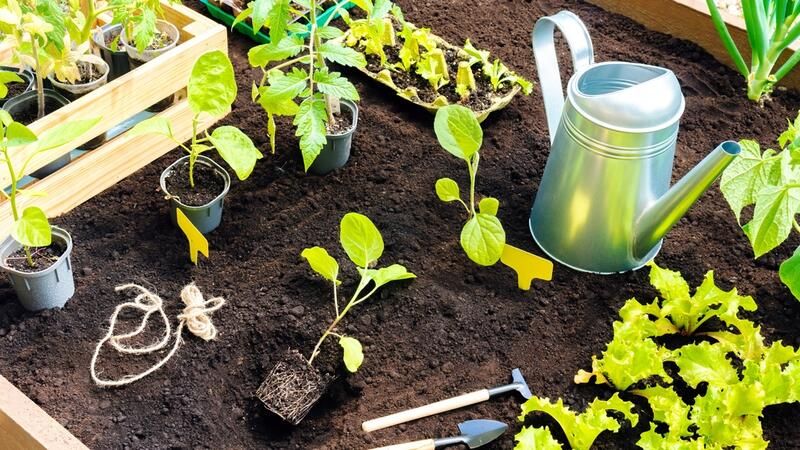
Avoid using diseased plants in your compost mixture as they may release harmful bacteria into your pile.
During the decomposition process, a good rule is to keep the pile moist and add water to it once every week. Keep your pile in a shaded area and far away from too much sunlight as this will dry it out and stop the decomposition from occurring.
Make sure to pick a spot in your garden that is well drained so that excess moisture from your pile goes into the ground, and avoid using areas with hard floorings such as concrete or cement.
To speed up the decomposition process you can add ground limestone to the compost pile. It's recommended to add a little bit of your soil between the layers of your compost pile in order to add other organisms which can be beneficial to the decomposition of your pile.
Remember to turn your pile every three weeks in order to ensure that your leaf compost is ready by the time spring rolls around.
Your compost pile can be as big or as small as you like, you don't need to use expensive bins or tumblers, you can stick to chicken wire for a low-cost alternative. Just remember to make it accessible so you can turn your pile easily.
How Else Can I Protect My Yard This Fall?
Fall is finally here which means more than ever we need to find ways to protect our precious gardens. Our experts at ShrubHub will provide you with a step-by-step guide to help you keep your yard in tip-top shape during the colder seasons.
Just visit ShrubHub and sign up, our experts are available to you 24/7 all you need to do is sign up and you can get yard designs for just under $300!


